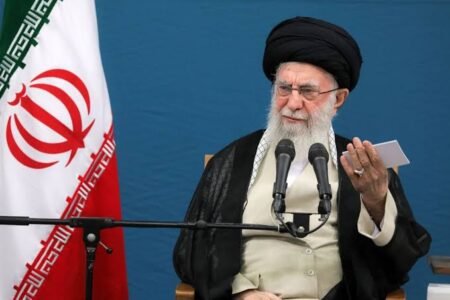The president of the Dangote Group, Aliko Dangote, has accused the Nigerian Union of Petroleum and Natural Gas Workers (NUPENG) of charging up to N50,000 for each truck that loads fuel at the refinery, warning that such charges will eventually raise fuel pump prices and burden consumers.
While NUPENG would not confirm or deny the accusation, industry experts on Sunday questioned how the oil union became a tax collector, emphasizing that such moves would undoubtedly hike pump costs for refined petroleum products.
Speaking to reporters in response to NUPENG’s charges that his company is prohibiting drivers of its freshly deployed 4,000 compressed natural gas-powered trucks from joining the union, Dangote stated that the union’s levies are unsustainable.
“I am saying that there are several charges here, where if a truck is going to load, NUPENG has been collecting about N50,000 or N48,000 on each truck. By the time everybody collects their own, you are talking about N80,000 to N84,000. So, who pays for that cost? The consumer actually pays,” Dangote declared.
He described such levies as actions of rent-seeking that inhibit efficiency in the industry.
According to him, the company has learned from its previous experiences as a petroleum importer, when carriers allegedly gripped Dangote Group “by the neck,” pushing him to develop an in-house fleet managed by his brother.
“Now that we have launched our own CNG trucks, we will not allow any group to hold us hostage. If there is no evacuation, there is nothing we can do,” he stressed.
Dangote emphasized that no driver or worker should be forced to join a union, arguing that the constitution and labor rules make union membership voluntary.
“If anybody wants to join the union, even our own workers, we say, ‘Fine, go and join.’ But it must be voluntary. Even religion is voluntary—you cannot force anyone to convert,” he said.
When asked for a response, NUPENG President Williams Akporeha neither acknowledged nor disputed the allegations of N50,000 charges. Instead, he replied cryptically: “N50k (N50,000) now?” “No more N1 per liter?”
In response to viral reports that the union enforced ₦1 per gallon levies, Akporeha stated, “One can’t stop people from having their opinion. Ask who alleges to provide proof.”
The debate follows NUPENG’s previous shutdown of depots and temporary blockade of the Dangote refinery over driver unionization concerns.
The federal government intervened, facilitating a memorandum of agreement among the parties. However, tensions remain high, despite an industrial court injunction in Abuja prohibiting NUPENG from future blockades.
Industry experts have expressed questions regarding the legitimacy of NUPENG’s claimed taxes. Professor Dayo Ayoade, an energy law specialist, questioned if the union had gone beyond its role.
“The job of a union is to assist its members and protect their jobs, but it doesn’t have a right to tax or collect fees for fuel loading. Is NUPENG now a tax-collecting agency? That is the question,” he argued.
He argued that Dangote’s insistence on controlling his own fleet is an attempt to escape such demands.
“If truck drivers are independent of the union, no one body can hold the entire country to ransom. Let competition reign. NUPENG should make itself attractive so drivers join voluntarily,” he said.
Dangote’s allegations cut to the heart of Nigeria’s electricity pricing mechanism. With pump prices already high due to foreign exchange pressures and shipping expenses, any additional levies at the refinery level will exacerbate affordability for consumers and businesses.
Analysts argue that such hidden costs, if confirmed, effectively act as an informal tax on energy consumers, undermining the government’s broader efforts to stabilize prices and encourage the adoption of alternative fuels like CNG.
To forestall disruptions, Dangote Group has invested heavily in 4,000 CNG-powered trucks for petroleum product distribution nationwide.
This move, Dangote said, ensures independence from third-party transporters and unions that could hold operations hostage.
The trucks are part of the refinery’s strategy to cut reliance on imported diesel, reduce costs, and demonstrate commitment to Nigeria’s energy transition.
While stakeholders acknowledge workers’ rights to organize, they caution that coercion, excessive levies, or blockades could derail confidence in Nigeria’s refining sector at a critical time.
Experts have encouraged the federal government to look into the allegations, provide clear regulatory frameworks for truck loading fees, and strike a balance between protecting workers and protecting consumers from unreasonable expenditures.










